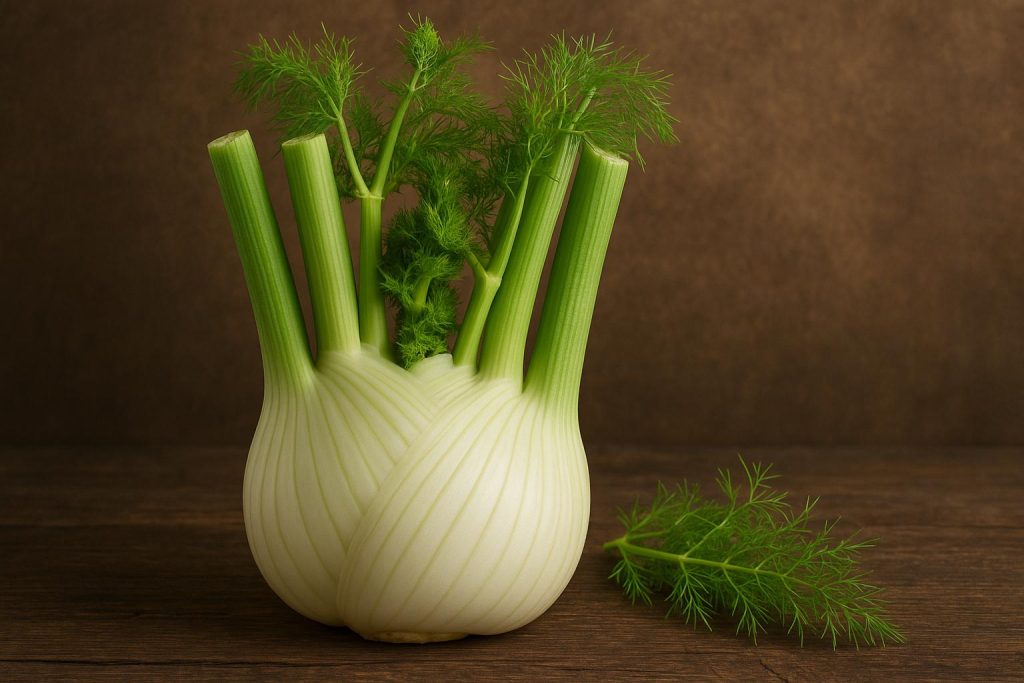
Introduction to Fennel
Fennel is a versatile herb renowned for its unique flavor and numerous benefits. Belonging to the Apiaceae family, fennel is scientifically known as Foeniculum vulgare. This perennial herb is native to the Mediterranean region but is now cultivated worldwide. As an herb gaining global popularity, fennel finds its place in kitchens and gardens across various continents, enjoyed for both its culinary and medicinal properties.
Characteristics
The fennel plant is characterized by its feathery leaves and bright yellow flowers. Growing up to six feet tall, it presents a striking silhouette with its broad, bulbous base that narrows into slender, branching stalks topped with delicate, thread-like leaves. There are two main types of fennel: bitter fennel and sweet fennel. Both types offer a distinct licorice-like flavor, attributed to the presence of an essential oil called anethole. This essential oil not only contributes to fennel’s aroma and taste but also plays a significant role in its health benefits.
Varieties
While bitter and sweet fennel are the two primary types, there are several cultivars used for different purposes. Sweet fennel, also known as Florence fennel or bulb fennel, is mainly grown for its thick, bulbous base, which is used as a vegetable. Bitter fennel, however, is primarily grown for its seeds, which are widely used as a spice. The choice between these types depends on the intended use, whether for consumption of the bulb or for harvesting seeds for seasoning.
Culinary Uses
Fennel’s culinary versatility makes it a staple in various cuisines. Its bulb, leaves, seeds, and even pollen are used in different dishes. The bulb can be sliced and sautéed, roasted, or eaten raw in salads, providing a crisp texture and mildly sweet flavor. Fennel seeds serve as a popular spice or seasoning, particularly prevalent in Mediterranean and Indian cuisines. They offer a warm, anise-like taste that complements various dishes, from savory meats to baked goods. Additionally, fennel leaves, with their subtle sweetness, are used as an aromatic herb in salads and as a garnish.
Moreover, fennel pollen, though less common, is highly prized by chefs for its concentrated flavor, which adds an elegant finishing touch to dishes. This pollen is harvested from the flowers and provides an intense burst of the characteristic fennel taste.
Nutritional Profile
Fennel is a low-calorie herb enriched with nutrients. It contains vitamin C, potassium, and fiber, making it a valuable addition to a balanced diet. Vitamin C serves as an antioxidant, aiding in the protection against free radicals and contributing to skin health and immune function. Potassium is crucial for maintaining heart health, while dietary fiber supports digestive health.
Additionally, fennel seeds are rich in antioxidants, such as flavonoids, which can aid in reducing inflammation and improving digestion. These compounds help neutralize harmful free radicals in the body, thus contributing to better overall health. Fennel’s nutritional profile makes it an excellent addition to meals for those looking to enhance their nutrient intake without adding excessive calories.
Health Benefits
Fennel is associated with several potential health benefits. Its anti-inflammatory and antioxidant properties are beneficial in enhancing overall health. The presence of these compounds in fennel can help reduce the risk of chronic diseases by combating oxidative stress and inflammation, common contributors to conditions such as heart disease and cancer.
Fennel is also known to assist in digestive health by alleviating symptoms like bloating and heartburn. Its carminative effects help reduce gas and improve digestion, making it a common home remedy for digestive discomfort. Moreover, chewing fennel seeds after meals is a traditional practice in several cultures to aid digestion and freshen the breath.
The phytoestrogen content in fennel may help in balancing hormones, potentially offering relief from symptoms associated with hormonal fluctuations, such as those experienced during menopause. Additionally, phytoestrogens can support bone health by mimicking estrogen, which is beneficial in maintaining bone density.
For further details on the culinary and health aspects of fennel, consider exploring resources that delve into its usage and benefits in greater depth. Fennel’s versatility and health benefits make it a worthy addition to both culinary adventures and health-conscious lifestyles, offering flavors and advantages that have been cherished for centuries.
By understanding both the culinary and health-related attributes of fennel, individuals can incorporate this herb into their diets more effectively, enhancing meals with its unique flavor while potentially reaping its health benefits. Its multifaceted nature continues to be explored and celebrated in both culinary and scientific communities around the globe.

